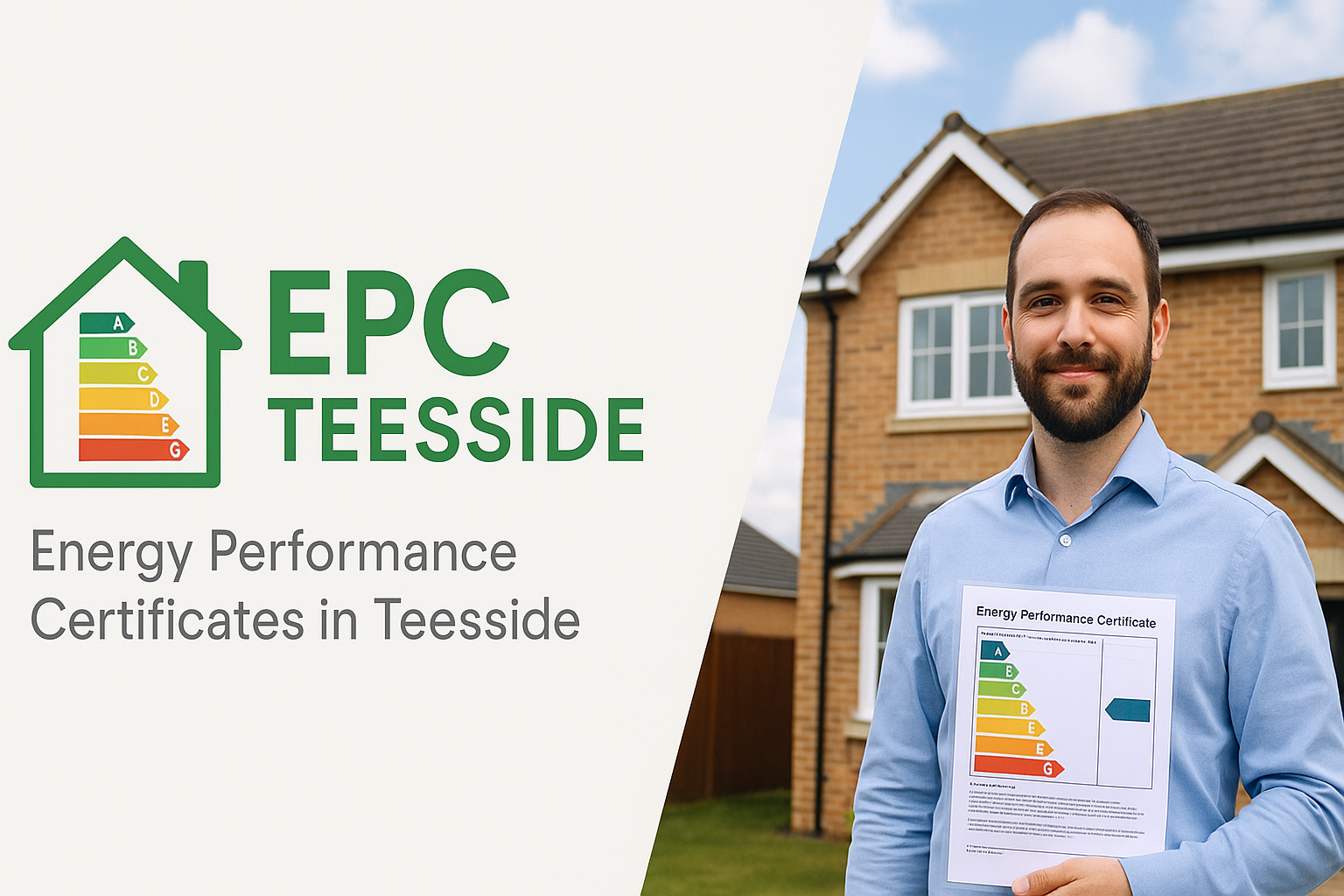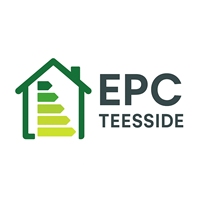How to Improve Your EPC Score
An Energy Performance Certificate (EPC) shows how energy efficient your property is, rated from A (most efficient) to G (least efficient).
Improving your EPC score not only makes your home cheaper to run but can also increase its value, attract buyers or tenants, and reduce your carbon footprint.
At EPC Teesside, we assess hundreds of homes across Middlesbrough, Stockton-on-Tees, Redcar, Hartlepool, and Darlington every year — and we’ve seen firsthand how small improvements can make a big difference.
Here’s a detailed guide to help you raise your EPC rating effectively and affordably.
1. Upgrade Your Loft Insulation
Heat rises, and around 25% of heat loss in an uninsulated home escapes through the roof.
Adding or topping up loft insulation is one of the quickest, cheapest, and most effective ways to improve your EPC.
Tips:
- Aim for at least 270mm (about 11 inches) of insulation.
- Use mineral wool or eco-friendly insulation boards.
- Check for gaps or compressed insulation in older properties.
Estimated EPC impact: +5 to +10 points
2. Insulate Your Walls
Walls account for up to 35% of heat loss, so insulation is a major factor in your EPC score.
Types of wall insulation:
- Cavity wall insulation: Suitable for most homes built after the 1920s.
- Solid wall insulation: External or internal panels for older brick or stone walls.
Proper insulation dramatically reduces energy use and improves comfort.
Estimated EPC impact: +10 to +20 points
3. Upgrade Your Heating System
Older boilers and inefficient heating systems are one of the biggest causes of poor EPC scores.
Replacing an outdated boiler with a modern condensing combi boiler can significantly increase efficiency.
Consider upgrading if your boiler is:
- Over 10–15 years old
- Lacking modern controls (like thermostats or TRVs)
- Non-condensing or running below 85% efficiency
Adding smart thermostats and programmable controls also helps improve your score.
Estimated EPC impact: +10 to +20 points
4. Switch to Low-Energy Lighting
Lighting makes up a small part of your energy use, but it’s an easy fix.
Replacing all bulbs with LEDs or low-energy lamps will improve your rating and lower bills.
Tips:
- Replace all incandescent or halogen bulbs.
- LEDs last longer and use up to 90% less energy.
Estimated EPC impact: +2 to +5 points
5. Improve Windows and Doors
Single-glazed windows lose a lot of heat. Installing double or triple glazing can improve insulation and comfort.
Additional measures:
- Add draught-proofing strips around windows and doors.
- Seal gaps around frames and floorboards.
Estimated EPC impact: +5 to +10 points
6. Insulate Floors
Around 10–15% of a home’s heat can be lost through uninsulated floors.
Options include:
- Laying insulation boards under floorboards
- Adding carpets or rugs to uninsulated floors
- Using underfloor insulation for suspended timber floors
Estimated EPC impact: +3 to +8 points
7. Add Renewable Energy Systems
Renewables are one of the most effective ways to achieve a higher EPC rating — and long-term energy savings.
Popular options include:
- Solar PV panels – generate electricity from sunlight
- Solar thermal panels – heat your water supply
- Air or ground source heat pumps – highly efficient heating systems
While the upfront cost is higher, renewables can dramatically improve your EPC score and qualify for government grants or energy-saving incentives.
Estimated EPC impact: +10 to +25 points
8. Upgrade Hot Water Systems
If your property uses an old immersion heater or hot water tank, consider upgrading to a modern insulated cylinder or on-demand combi system.
Adding a cylinder jacket can also help retain heat longer.
Estimated EPC impact: +3 to +7 points
9. Seal and Draught-Proof Your Home
Even with good insulation, unwanted draughts can waste energy and make heating less efficient.
Simple fixes include:
- Sealing chimneys when not in use
- Using draught excluders around doors and windows
- Closing gaps around pipes and vents
Estimated EPC impact: +2 to +6 points
10. Consider Smart Home Upgrades
Smart heating systems like Hive, Nest, or Tado can boost efficiency by learning your habits and adjusting heating automatically.
While the EPC system doesn’t directly score “smart tech,” improved control of heating and timing often leads to better energy performance.
Estimated EPC impact: +2 to +5 points
How Much Can You Improve Your EPC Rating?
A combination of small and large upgrades can make a big difference:
- Minor improvements (LEDs, draught-proofing, controls): Up to +10 points
- Moderate improvements (insulation, glazing): +15–30 points
- Major upgrades (boiler, renewables): +30–50 points
Moving from E to C or even D to B is achievable for many homes with a smart plan.
Why Improving Your EPC Matters
- Reduce energy bills by up to 30–40%
- Increase property value and appeal to buyers and tenants
- Comply with landlord regulations (MEES)
- Lower carbon emissions and support sustainability
- Make your home more comfortable year-round
Get Expert Help from EPC Teesside
At EPC Teesside, we don’t just provide certificates — we help you understand them.
After every assessment, we include personalised recommendations specific to your property, showing which improvements will give you the best return.
If you’d like tailored advice on how to raise your EPC score, or you’re ready to book an assessment, contact us today:
📞 Phone: 0751 813 5361
📧 Email: johnpaulhood2015@gmail.com
We’re proud to serve Middlesbrough, Stockton-on-Tees, Redcar, Hartlepool, Darlington, and the wider Teesside area.
EPC Teesside — Helping You Save Energy, Save Money, and Improve Your Home.

